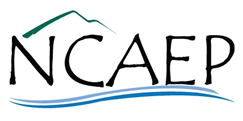Environmental Tech Summit: Improving Our Environment with Modern Technology
Thursday April 26, 2018
8am – 5:30pm EDT
https://envirotechsummit.org/
Location:
Devolve
304 Glenwood Ave
Raleigh, NC 27603
The Summit is designed to introduce engineers, scientists, technical and other professional in the environmental industry to the latest software and hardware solutions, and to the people tackling big environmental problems.
DISCOVER the latest apps, smart IoT devices, drone use cases, mapping technologies, field data collection systems, reporting automation, big data uses, and other modern tools and techniques.
CONNECT with environmental professionals, tech developers, hardware engineers, and scientists to learn and create solutions for your projects and problem sets!
EARN NC Professional Development Hours (PDHs) for Engineers.
Sponsorship opportunities available!
For more information please contact: Nicholas A. Moran, PG
CoFounder & Geologist (namoran@gmail.com)
